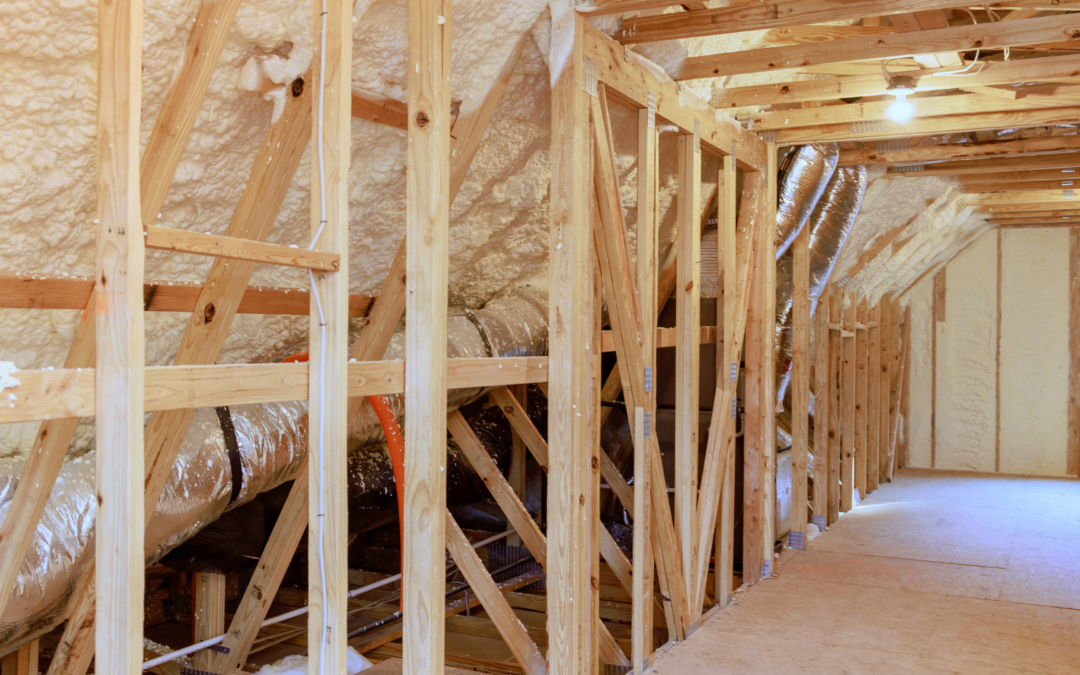In the quest for a more energy-efficient and comfortable home, spray foam insulation emerges as a leading solution. Not only does it provide superior thermal insulation, but it also significantly reduces noise, making it an ideal choice for homeowners and property owners alike.
Understanding the cost of spray foam insulation is essential for making an informed decision about your home improvement strategies. This guide will break down the factors affecting spray foam insulation cost, helping you to maximize comfort and savings.
What Influences the Cost of Spray Foam Insulation?
Spray foam insulation cost is influenced by several key factors, including the type of foam, the area to be insulated, and the thickness of the application. Before we explore these factors in detail, it’s important to understand the benefits that make spray foam insulation a worthy investment for your property.
Types of Spray Foam Insulation
There are two main types of spray foam insulation. Here’s a breakdown of the differences between them:
- Open-Cell Foam: Ideal for interior walls, as it allows for effective sound dampening along with temperature control. It is less dense and has a lower R-value per inch, making it more affordable than its counterpart.
- Closed-Cell Foam: Known for its higher R-value per inch, closed-cell foam is denser and more moisture-resistant, making it suitable for both interior and exterior applications, including roofs and outdoor spaces.
Area to Be Insulated
The size of the area requiring insulation directly impacts the cost. Larger areas will require more material and labor, increasing the overall price. However, insulating more space can lead to greater energy savings over time.
Thickness of the Application
The thickness of the spray foam insulation applied affects both its insulating properties and its cost. Thicker layers provide better insulation but will increase the material and labor costs.
Cost Breakdown of Spray Foam Insulation
The cost of spray foam insulation can vary widely based on the factors mentioned above. Here’s a general breakdown to give you an idea:
- Material Costs: Spray foam insulation is typically priced by the board foot (a unit measuring 12″ x 12″ x 1″). Prices vary between open-cell and closed-cell foam, with closed-cell being the more expensive option due to its higher density and insulation properties.
- Labor Costs: The complexity of the installation and the accessibility of the area to be insulated will affect labor costs. Professional installation ensures proper application and maximizes the benefits of spray foam insulation.
Maximizing Your Investment in Spray Foam Insulation
To ensure you’re making the most of your investment in spray foam insulation, consider the following tips:
Assess Your Needs
Begin by conducting a thorough evaluation of your home to identify which areas would benefit most from the addition of spray foam insulation. It’s crucial to prioritize spaces that are prone to energy loss, such as attics, basements, and exterior walls, as these areas can lead to significant energy savings when properly insulated. Identifying these key areas will help tailor your insulation efforts for maximum efficiency.
Choose the Right Type
After identifying the areas that need insulation, it’s important to decide between open-cell and closed-cell spray foam based on your specific requirements. Open-cell foam is softer and more flexible, making it better for sound insulation but less effective at blocking moisture.
Closed-cell foam, on the other hand, is denser and provides excellent moisture resistance and structural support, making it ideal for regions prone to water exposure or in need of more robust insulation. Consider factors such as insulation R-value, moisture resistance, soundproofing needs, and budget when making your selection to ensure you choose the most appropriate type for your home.
Hire Professionals
While it may be tempting to attempt a DIY installation, hiring professionals for the application of spray foam insulation is highly recommended. Professional installers have the necessary experience, tools, and knowledge to ensure that the insulation is applied correctly and evenly, covering all necessary areas without gaps or overspray.
They can also advise on the best type of foam for your specific situation and handle any challenges that arise during the installation process. Ultimately, professional installation guarantees optimal performance and efficiency of the insulation, ensuring that your investment leads to the desired energy savings and comfort improvements in your home.
FAQs About Spray Foam Insulation Cost
Q: Is spray foam insulation worth the cost?
A: Yes, while the initial investment may be higher than traditional insulation materials, the energy savings, durability, and comfort improvements make spray foam insulation a cost-effective choice in the long run.
Q: How long does spray foam insulation last?
A: Spray foam insulation can last the lifetime of your home, often more than 20 years, offering sustained energy savings and comfort.
Q: Can I install spray foam insulation myself?
A: Due to the chemicals involved and the need for precise application, it’s highly recommended to have spray foam insulation installed by professionals.
Conclusion
Spray foam insulation represents a smart investment for homeowners and property owners seeking to enhance their property’s energy efficiency and comfort. By understanding the factors that influence the cost of spray foam insulation, you can make informed decisions that align with your budget and home improvement goals. With the potential for significant energy savings and improved living conditions, spray foam insulation is an option worth considering for any modern, eco-conscious home.
Don’t wait to experience the countless benefits of spray foam insulation. Contact Victoria Spray Foam Insulation today for a consultation and quote. Our expert team is ready to help you achieve unparalleled energy efficiency, comfort, and savings in your home. Call us now to get started on your insulation journey!

